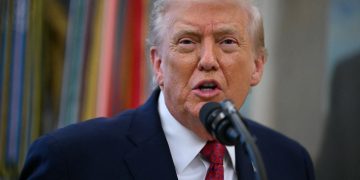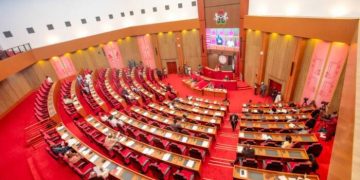Nigeria’s foreign exchange market witnessed a significant appreciation in its local currency this January, with the naira gaining N63.72 against the US dollar to close at N1,474.78 per dollar on January 31, 2025. This notable 4.14% increase marks the highest level seen in the past seven months, with the last comparable rate recorded on June 11, 2024, at N1,473.88 per dollar.
Trend Analysis: A Month of Fluctuations and Sustained Gains
The year began on a relatively high note, with the naira opening at N1,538.50 per dollar on January 2, 2025. The exchange rate experienced early volatility; for instance, it dipped slightly to N1,535.00 per dollar on January 3. Throughout the month, fluctuations were observed, with the naira reaching its highest intramonth value of N1,560 per dollar on January 16. However, a more sustained appreciation trend emerged in the latter half of January. By January 24, the rate had moderated to N1,531 per dollar, and further strengthened to N1,520 per dollar on January 28 before closing at N1,474.78 per dollar on the final day of the month.
This pattern of volatility followed by steady gains suggests that market participants initially reacted to short-term dynamics and speculative pressures, which eventually gave way to a more stable environment underpinned by robust policy measures.
Drivers Behind the Naira’s Appreciation
The sharp increase in the naira’s value is primarily attributed to a series of strategic policies implemented by the Central Bank of Nigeria (CBN). These measures have significantly influenced market dynamics and restored investor confidence in the local currency. Key factors include:
1. Monetary Policy Adjustments: The CBN’s proactive stance on managing liquidity and controlling inflation has created a more predictable monetary environment. These adjustments have helped reduce uncertainties, encouraging both domestic and foreign investors to hold the naira.
2. Foreign Exchange Market Interventions: The CBN’s interventions in the foreign exchange market have stabilized the naira’s value. By setting reference rates and closely monitoring market activities, the central bank has mitigated extreme volatility, leading to a gradual and sustained appreciation.
3. Market Sentiment and Confidence: Enhanced investor confidence, spurred by transparent policy measures and consistent communication from the CBN, has played a pivotal role. As traders observed the central bank’s commitment to stabilizing the currency, speculative activities were curtailed, leading to a more balanced market
4. Economic Fundamentals: Improvements in Nigeria’s economic indicators, such as increased foreign investment and a more favorable balance of trade, have also contributed to the naira’s strengthening. These fundamentals have provided a solid backing for the currency, reinforcing the impact of the CBN’s policies
Market Reactions and Observations
Authorised currency dealers reported a trading range between N1,447.50 and N1,495.01 per dollar during the month. This range reflects both the initial market jitters and the subsequent stabilization as policy measures took effect. The gradual move from a volatile start to a more sustained appreciation indicates that market participants are increasingly aligned with the central bank’s long-term vision for the naira.























































